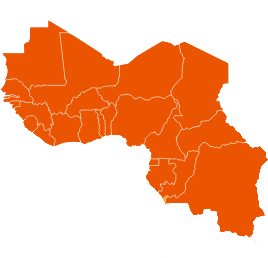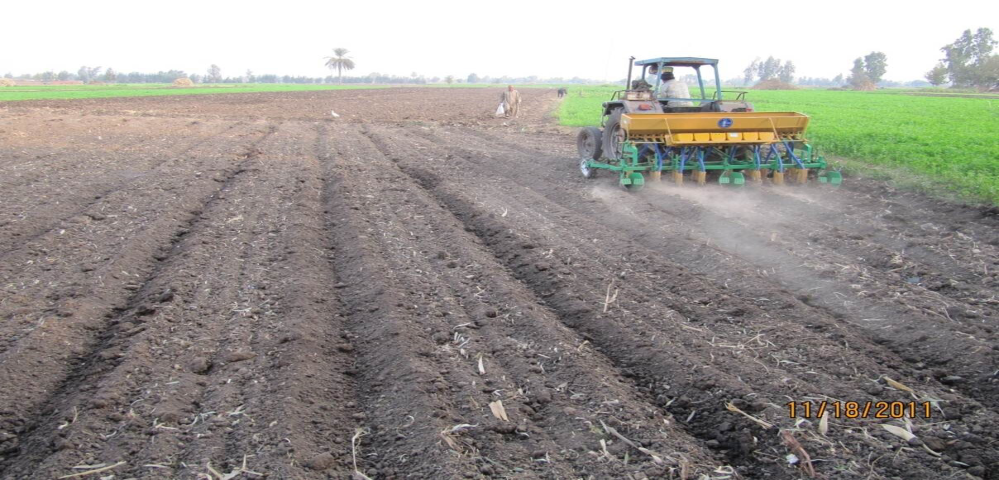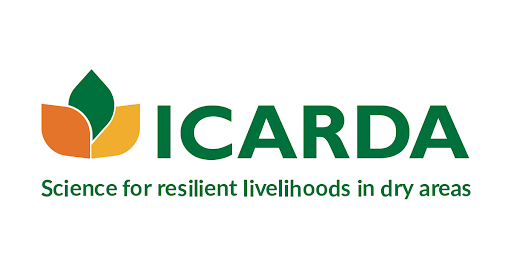Mechanized raised-bed technology
“MRB improves water use efficiency in dryland conditions, bettering farmers’ livelihoods and increasing farm productivity while using fewer inputs.”
BACKGROUND
In Egypt, a lack of good water-management practices and excessive pressure on available resources are reducing yields and affecting livelihoods. The mechanized raised bed technology creates evenly spaced furrows for optimal water travel, vastly improving water efficiency. Farmers are able to save water and produce significantly higher crop yields.
WHAT’S INVOLVED
Agronomic practices : Through improved agronomic practices, farmers can learn how to cultivate improved crop varieties and access high-yield seed varieties for better production results.
Participation of farmers and extension services : Farmers can access trainings and water-user associations to develop irrigation and farming capacity.
EXPLORE THIS SOLUTION
The mechanized raised-bed technological package can offer:
- Improved crop varieties and agronomic practices
- Water-use efficiency

Countries involved
Egypt, Sudan, Nigeria, Ethiopia, Eritrea, Iraq, Jordan, Morocco, Nigeria, Uzbekistan and Sudan.
Project partners
African Development Bank, Bill & Melinda Gates Foundations, United States Agency for International Development, International Fund for Agricultural Development of the United Nations, European Union, Food and Agriculture organization of the United Nations, Arab Fund for Social and Economic Development fund, Consultant Group for International Agriculture Research, Program for Water, Land and Ecosystems, Kuwait Fund for Development, Islamic Development Bank, OPEC Fund for International Development, Government of Egypt, Government of Sudan
Project dates
2004 – Ongoing
Share this solution
Bookmark this solution
BookmarkShow Full Solution
Summary
Mechanized raised-bed (MRB) irrigation is a field-configuration technology that enhances water use efficiency in dryland conditions. This technology, along with improved crop varieties and agronomic practices, is part of a MRB production package that improves farm productivity and income. For wheat in Egypt, MRB led to an average 25 percent increase in yield, more than 60 percent increase in water productivity and about 20 percent in farming cost reduction.
Challenge/Problem
Across the globe, regions are facing population growth and increased water consumption while rainfall levels diminish because of intensifying climate changes. Because rural communities in dry areas such as the Middle East and North Africa region are especially vulnerable, addressing water scarcity is a priority for rural development. In Egypt, water scarcity for agriculture has been and will continue to be a profound problem. Water scarcity has crossed the threshold of 1,000 cubic metres per capita per year, a figure that is estimated to fall to 500 in 2025 if there is no significant improvement in management. Currently, water moves with gravity until it reaches private irrigation canals, where farmers then pump it to their fields to irrigate their crops without a particular system or schedule. Flood irrigation is the overwhelming method used in the Delta and Nile Valley, this puts pressure on available resources. Water scarcity and mediocre yield are two challenges that keep most of the people working in the agricultural sector in poverty.
Solution
MRB improves water use efficiency in dryland conditions, bettering farmers’ livelihoods and increasing farm productivity while using fewer inputs. It is an alternative to conventional forms of irrigation (such as flood or furrow irrigation) that often result in uneven water distribution, saturating some crops and leaving others dry.
Attachable to standard farm tractors, raisedbed machines quickly and easily create raised soil beds by digging evenly spaced furrows optimized for water movement. The machines include an innovative seed-drill device that can simultaneously plant different crops at adjustable rates. This machine, along with improved crop varieties and agronomic practices delivered by extension services and water-user associations, represents the MRB production package.
The International Center for Agricultural Research in the Dry Areas (ICARDA) and national partners in Egypt have developed a unique community-based innovative package. Within its research for development model, ICARDA partnered with national agricultural research systems and farming communities to develop a machine suitable for family farming. ICARDA also delivers an integrated approach of inputs, demonstrations and training field days that involve stakeholders in decision-making. Policies in Egypt, Sudan and Nigeria have also enabled a suitable environment for the adoption of the MRB technology. Numerous agreements have been signed to scale out MRB outside of Egypt with the help of donors such as the Bill & Melinda Gates Foundation, the EU and the Food and Agriculture Organization (FAO), among many others.
The solution is intended for small scale farmers, local private enterprises developing MRB machinery, Ministry of Agriculture and Land Reclamation and local authorities in each governorate. Adopting the technology leads to increased soil health and higher fertilizer efficiency, reducing farming cost. Combined with the increased yields, this results in higher net incomes.
Results
The MRB package has rendered the following results:
- High yields: It has transformed irrigated wheat-based production systems across Egypt, Sudan and beyond, achieving 30 percent higher crop yields while using 25 percent less irrigation water and reducing farming costs by 20 percent.
- High adoption: In Egypt, more than 750,000 farmers adopted MRB over 1.2 million acres.
- Saves water: Reaching the project’s target area for wheat cultivated using the MRB package could result in total irrigation water savings of more than 1.5 billion cubic metres per year by 2025.
- Government interest: MRB was disseminated towards sustainable agriculture in 22 governorates of Egypt as part of a nation-wide campaign to enhance self-sufficiency in wheat.
- Reduced workload: Raisedbed machines reduced planting workloads by 80 percent.
- Food independence: By raising production, MRB reduced dependency on imported wheat.
- Collectively owned solution: In every village, there are two or three tractors with MRB machines that are rented to other the farmers
- Saves time: Using MRB machines, one acre can be planted in 35 minutes.
Lessons Learned/Potential for replication
Scaling up the technology and achieving system-level outcomes requires adequate understanding of the reasons why farmers adopt MRB, based on insightful assessment of the technology’s efficiency, system performance and impacts.
Next Steps
The MRB innovation has become a strong component of Egypt's national wheat campaign. The Egyptian government aims to cultivate 2 million acres of wheat with the MRB technology by 2022. Substantial increases in the wheat area cultivated by MRB throughout Egypt are expected to increase production to over 14 million tons by 2025. This could result in total irrigation water saving of more than 1.5 billion cubic metres per year by 2025, benefitting an additional 200,000 hectares.
Last update: 25/05/2021



